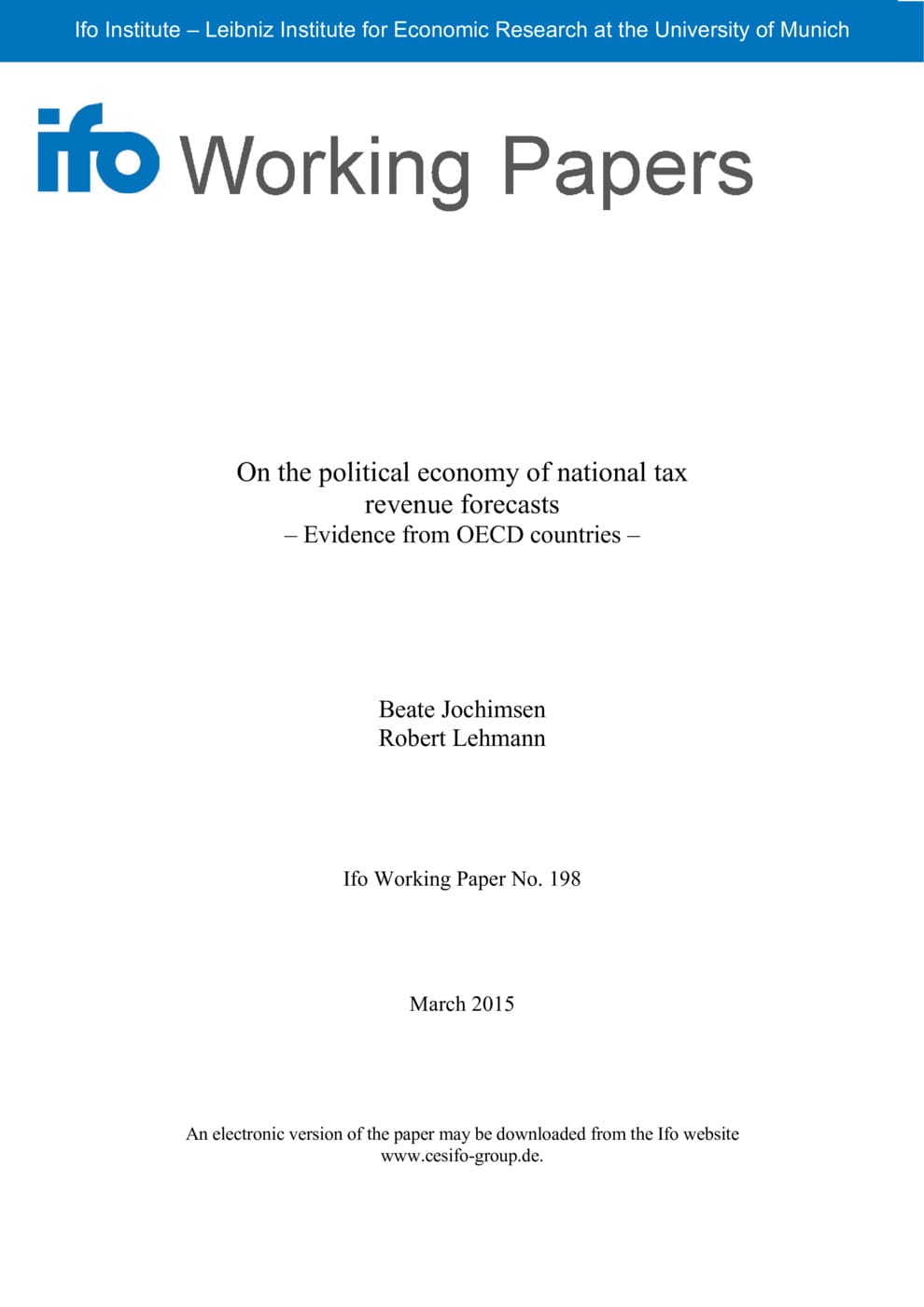On the political economy of national tax revenue forecasts – Evidence from OECD countries
Ifo Institute, Munich, 2015
Ifo Working Paper No. 198

Solid budgets serve as important quality signals for the electorate. Politicians might therefore face an incentive to influence tax revenue forecasts, which are widely regarded as a key element for budget setups. Looking at the time period from 1996 to 2012, in this study we systematically analyze whether national tax revenue forecasts in eighteen OECD countries are biased through political distortions. Based on several theoretical approaches drawn from the theories of political economy, we test four hypotheses using panel estimation techniques. We find strong support for partisan politics. Left-wing governments seem to produce more optimistic or less pessimistic tax revenue forecasts than right-wing ones do. Contrary to the theoretical prediction based on the "common pool" problem, we find that more fragmented governments and parliaments tend to produce more pessimistic or less optimistic tax revenue forecasts. One reason might be that at least one of the incumbents will stay in office and will be part of the next government, too. We do not find empirical evidence for political business cycles or an influence of the reelection probability on tax revenue forecasts at all.